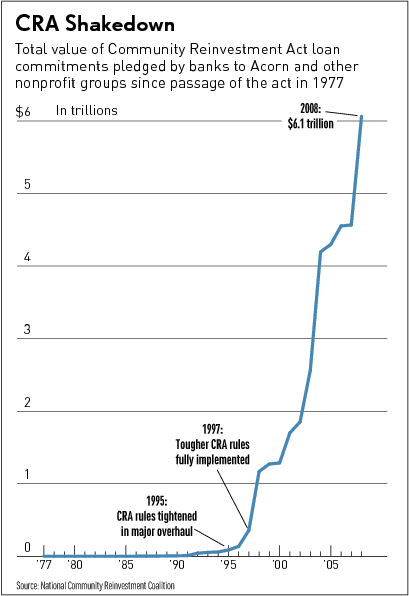Mr. Shaman
Senior Member
- May 4, 2010
- 23,892
- 822
- 48
Produce the entire study for us to examine
I purchased the study and downloaded it. However, it would be a copyright violation for me to post it on this forum.

Bullshit
Follow along with the video below to see how to install our site as a web app on your home screen.

Note: This feature currently requires accessing the site using the built-in Safari browser.
Produce the entire study for us to examine
I purchased the study and downloaded it. However, it would be a copyright violation for me to post it on this forum.

Add in some greed and some legal, yet unscrupulous business dealing, and I agree..
The CRA played a part, as did many other things and many other people.
But this disaster has been decades in the making, putting an inflated lifestyle on credit cards, and those bills are now coming due.
I'm sick of the finger-pointing. This country needs to look in the mirror. For a change.
.
Yep, another critical piece of the puzzle.
.
Add in some greed and some legal, yet unscrupulous business dealing, and I agree.
Yep, another critical piece of the puzzle.
.
The biggest piece is the flood of brand new gullible billionaires in Asia breaking down the door trying to get a piece of the formerly safe and lucrative US mortgage market. Mortgage brokers wanted that money badly but there was only so many good mortgages to go around, solution? Lend to everyone, cash in, demand the taxpayers cover your ass when it all blows up.
Produce the entire study for us to examine
I purchased the study and downloaded it. However, it would be a copyright violation for me to post it on this forum.

Bullshit
I like this graph from the article. It's extremely incriminating:

Typical you ignore the gaping hole in the article and grasp at straws.
Explain the "gaping hole" in the chart I posted.
Yes you do, turd. You obviously didn't read it either.
Add in some greed and some legal, yet unscrupulous business dealing, and I agree..
The CRA played a part, as did many other things and many other people.
But this disaster has been decades in the making, putting an inflated lifestyle on credit cards, and those bills are now coming due.
I'm sick of the finger-pointing. This country needs to look in the mirror. For a change.
.
But greedy people have been around since.... forever.
Only one person used the power of our Federal government to force the separation of mortgage lending from credit worthiness and ability to repay.
Once the genie was out of the bottle, it was hogs to the trough.

"Not only was the entire national deficit eliminated after raising taxes on the wealthy in 1993, but the economy grew so fast for the remainder of the decade that many conservative economists thought that the Fed should raise the prime interest rate in order to slow it down."

In interpreting our results, it should be stressed that while we find that the Community Reinvestment Act led to increased origination rates of risky loans, it may still be an efficient policy due to other, desirable consequences.
The results presented in figure 9(a) confirm our earlier finding that banks in the treatment group are more likely to originate mortgages relative to control group banks around CRA exams. More important, we find a differential increase in the elevated lending around the CRA exams during the 2004–2006 period and to some extent in the 2007–2009 period relative to the1999–2003 period. One reason for this behavior could be that the boom in securitized lending in the private markets during 2004–2006 and to the GSEs during 2007–2009 gave banks an avenue to park “potentially risky” loans off their balance sheets.
Yes you do, turd. You obviously didn't read it either.
Go ahead and quote the part where they say the CRA caused the recession.
Show us where the Royal Bank of Scotland was forced to comply with the CRA.
.
Go get the study
More from the NBER report to which I linked:
In interpreting our results, it should be stressed that while we find that the Community Reinvestment Act led to increased origination rates of risky loans, it may still be an efficient policy due to other, desirable consequences.
So they clearly do not feel the CRA is so dangerous that it should be eliminated.
The results presented in figure 9(a) confirm our earlier finding that banks in the treatment group are more likely to originate mortgages relative to control group banks around CRA exams. More important, we find a differential increase in the elevated lending around the CRA exams during the 20042006 period and to some extent in the 20072009 period relative to the19992003 period. One reason for this behavior could be that the boom in securitized lending in the private markets during 20042006 and to the GSEs during 20072009 gave banks an avenue to park potentially risky loans off their balance sheets.
This is exactly what I was talking about above. If it was just about bad loans, the crisis would not have been anywhere near as severe. Derivatives allowed for the risk to be transferred well down the pipeline to the rubes like your 401k manager, and your public employee pension fund manager, and your city treasurer, and your insurance company investment manager, and your college endowment fund manager.
These were not just constructed out of CRA tracts, but all loans. Derivatives simply made it very easy to transfer the risk away from the originator of the loans.
This was driven by $70 trillion of investor demand. The financial sector marketing geniuses convinced investors to buy into derivatives and the demand was out of sight. To meet that demand, more and more and more underlying assets were needed. And when all the prime assets were used up, they had hardly put a dent into the demand. So that required more creative ways to get people to borrow money.
So of course CRA loans are going to be out of proportion. There are more poor people than rich people. It's a pyramid.
When you have gotten the top of the pyramid to borrow as much as it can, you move down the pyramid and make more loans to more people. It takes more poor people to borrow the same amount of money as a top two percenter.
And you get to take credit with the government for doing it!
.
More from the NBER report to which I linked:
In interpreting our results, it should be stressed that while we find that the Community Reinvestment Act led to increased origination rates of risky loans, it may still be an efficient policy due to other, desirable consequences.
So they clearly do not feel the CRA is so dangerous that it should be eliminated.
The results presented in figure 9(a) confirm our earlier finding that banks in the treatment group are more likely to originate mortgages relative to control group banks around CRA exams. More important, we find a differential increase in the elevated lending around the CRA exams during the 20042006 period and to some extent in the 20072009 period relative to the19992003 period. One reason for this behavior could be that the boom in securitized lending in the private markets during 20042006 and to the GSEs during 20072009 gave banks an avenue to park potentially risky loans off their balance sheets.
This is exactly what I was talking about above. If it was just about bad loans, the crisis would not have been anywhere near as severe. Derivatives allowed for the risk to be transferred well down the pipeline to the rubes like your 401k manager, and your public employee pension fund manager, and your city treasurer, and your insurance company investment manager, and your college endowment fund manager.
These were not just constructed out of CRA tracts, but all loans. Derivatives simply made it very easy to transfer the risk away from the originator of the loans.
This was driven by $70 trillion of investor demand. The financial sector marketing geniuses convinced investors to buy into derivatives and the demand was out of sight. To meet that demand, more and more and more underlying assets were needed. And when all the prime assets were used up, they had hardly put a dent into the demand. So that required more creative ways to get people to borrow money.
So of course CRA loans are going to be out of proportion. There are more poor people than rich people. It's a pyramid.
When you have gotten the top of the pyramid to borrow as much as it can, you move down the pyramid and make more loans to more people. It takes more poor people to borrow the same amount of money as a top two percenter.
And you get to take credit with the government for doing it!
.
Good analysis, if it had just been the actual foreclosures the crash would not have been much of a crash but leveraging all those bad mortgages up to 50:1 and getting them highly rated magnified the impact far out of proportion.
Yes you do, turd. You obviously didn't read it either.
Go ahead and quote the part where they say the CRA caused the recession.
Show us where the Royal Bank of Scotland was forced to comply with the CRA.
.
Does the report say that the CRA was a major contributor to risky lending, foreclosure and the housing market collapse?
Then the rest could have been a domino effect.